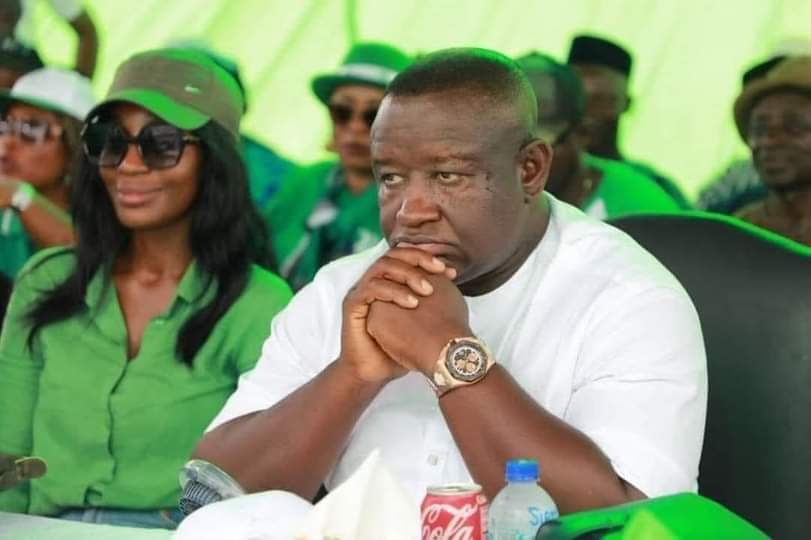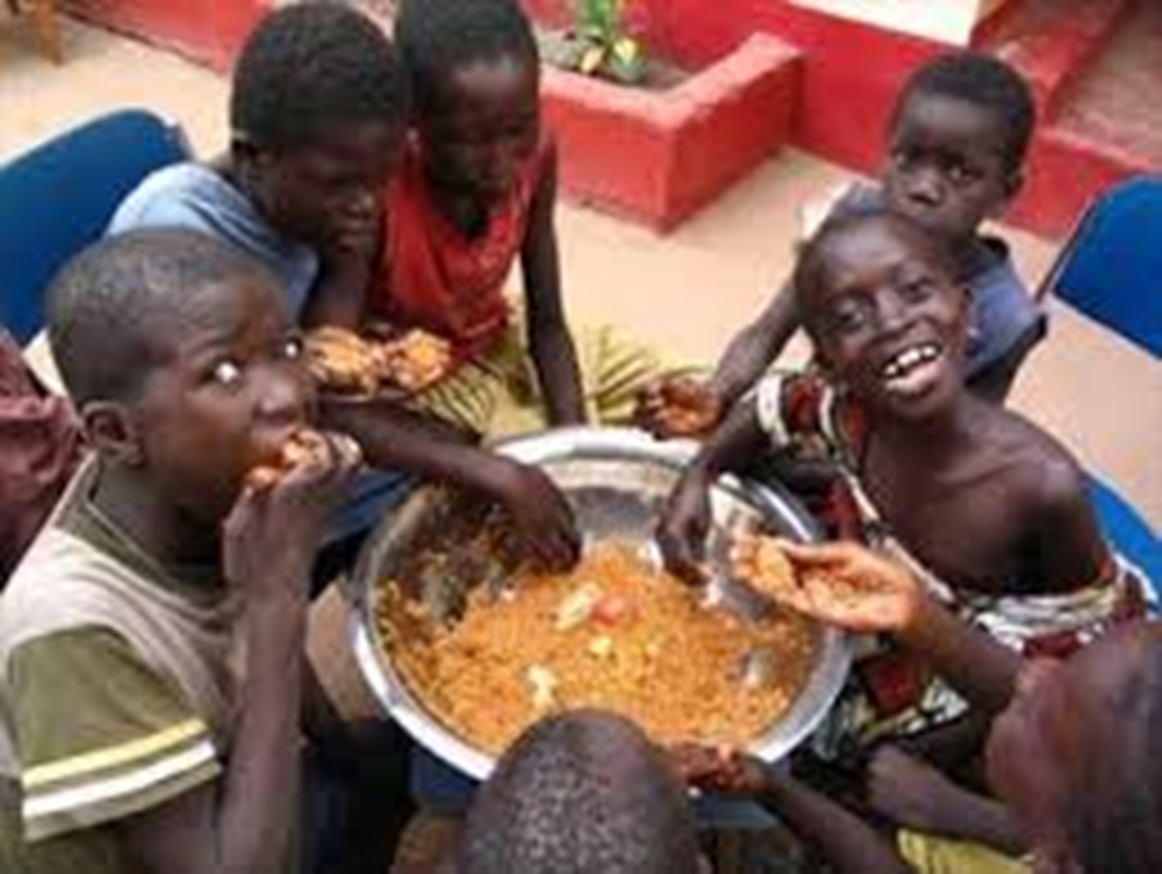By Sulaiman Aruna Sesay
Today marks four years since President Julius Maada Bio and his “New Direction” SLPP government took over office.
According to their manifesto, they promised to deliver better standard of living for all Sierra Leoneans. Also, during his 2018 elections campaign, President Bio assured Sierra Leoneans that his administration would not be like their predecessors the All Peoples Congress (APC), who he said where spending the country’s resources like ‘drunken sailors’.
However, experts have identified overwhelming levels of poverty in the country, attributing it to the SLPP government corruption practices, and lack of accountability to the people of Sierra Leone.
“With the unestablished infrastructure for roads and electricity, high transportation costs pose barriers to trade and limit economic growth,” one expert noted.
One political commentator referred to the current economic condition of the country as the worst since the war ended.
“The masses are suffering and poverty written in the frustrated faces of our people,” he stated. “Life in this Country is tough! businesses are struggling, taxed to the point of closure, we fight for transport, fight for water, struggle to top up the meter and their phone, ” Femi Claudius-Cole, Unity Party leader stated.
In the 2021 Global Hunger Index, Sierra Leone ranks 106th out of the 116 countries with sufficient data to calculate 2021 GHI scores. With a score of 31.3, Sierra Leone has a level of hunger that is serious.
Around 5.1 million Sierra Leoneans are estimated to lack sufficient nutritious food to live a healthy life, with 789,536 of them being severely food insecure according to the June 2020 Emergency Food Security Monitoring System report.
The increase in food prices and rising cost of fuel prices have added to the miseries of the ordinary Sierra Leoneans.
The COVID-19 pandemic and its economic fallout has further exacerbated living conditions and access to basic amenities for citizens.
Public debt is at all time high with the risk of external and overall debt distress was assessed as outstanding. According to a recent report by Investopedia, Sierra Leone is ranked 16 among the top 20 countries with the highest debt-to-GDP ratio in Africa.
In a recent radio discussion, Hon. Abdul Kargbo of the opposition All Peoples Congress (APC) averred that the ruling Sierra Leone Peoples Party (SLPP) had increased the public debt from Le17.83 trillion in 2018 to Le30.71 trillion.
Hon. Kargbo said that if we are to pay the debt incurred by the SLPP, each Sierra Leoneans is to pay $423, making Sierra Leone the most indebted nation in the sub region.
Citizens were also expecting the Bio administration tackle the problem of job creation. Nonetheless, the unemployment rate is at all-time high, with over 65 percent of the population unemployed.
Shortly after coming to power in 2018, the SLPP Government launched the Medium-Term National Development Plan (MTNDP – 2019-2023), which maps out immediate and long-term development goals and commitment to transform from a fragile state into a stable democracy.
However, the World Bank reports that tensed political rivalry especially between the ruling SLPP and the main opposition APC continues to characterize the complex nature of politics and this sometimes results to violent confrontations.
The setting up of the Commissions of Inquiry to investigate the governance activities of the past administration, the annulment by the High Court of the election of 10 opposition MPs in 2019, and the trial of some senior opposition members for various offenses, added to the political tension.
The suspension of the Auditor General after revealing corrupt practices of SLPP government including the President and the First Lady has also added to the political tension in the country.
According to World Bank, until the outbreak of Ebola in 2014, Sierra Leone was seeking to attain middle-income status by 2035, but the country still carries its post-conflict attributes of high youth unemployment, corruption, and weak governance.
“The country continues to face the daunting challenge of enhancing transparency in managing its natural resources and creating fiscal space for development. Problems of poor infrastructure and widespread rural and urban impoverishment persist despite remarkable strides and reforms,” World Bank stated.
Last year, for his three year in office, President Julius Maada Bio and three of his most loyal and trusted ministers – Basic Education Minister, David Sengeh, Finance Minister, Jacob Jusu Saffa, and Information Minister, Mohamed Swarray, appeared frantically on national television defending the government’s three years record in office.
The quality and availability of “free quality education” for pre-primary, primary, junior and senior school for government and government assisted schools, which was launched in August 2018, is one of the positive contributions to citizens by President Bio’s government.
Another positive point of the Bio led government is the repealed of the draconian Part 5 of the Public Order Act of 1965 that criminalized libel, while the President has also signed into law the abolition of the death penalty.
Speaking about the flagship free education project, president Bio said: “I introduced the Free Quality School Education to every part of the country. Every child must go to school irrespective of their origin and political affiliation. Government is paying fees for more than 2.5 million kids in the pre-primary, primary, junior and senior secondary schools in all regions. And we are making a steady progress by making sure that Sierra Leone regains the lost glory of being called the Athens of West Africa”.
When the president was asked to reflect on his three years in office and what he could have done better. The president told the people of Sierra Leone that; “it is too early to tell what could have been done differently”, and that his government is very busy consolidating its policies and programmes that many people in Sierra Leone believe have failed to address the basic problems facing the country – mass unemployment, poverty, crumbling public services, and lawlessness.
Sierra Leone is a poverty-stricken West African country that has been plagued by several social, economic, and political issues. One of the major problems that most Sierra Leoneans face is the bread and butter issue, which refers to the struggle to meet basic needs such as food, shelter, and clothing.
One of the primary reasons for the bread and butter issue in Sierra Leone is the deficient economy. The country has limited resources, and most of its wealth is exported to other countries in the form of raw materials such as diamonds, gold, and iron ore. This leaves the country with a huge trade deficit, which in turn leads to high unemployment rates, low wages, and a lack of financial opportunities for the local population.
Another challenge faced by the Sierra Leonean people is that their country is still recovering from a decade-long civil war that ended in 2002. The conflict destroyed much of the country’s infrastructure, including schools and hospitals, and left many people living in poverty.
Additionally, corruption and mismanagement of resources by the government have contributed significantly to the bread and butter issue in the country. This has resulted in a lack of access to essential public services such as healthcare, education, and clean water.
The lack of opportunities for the average Sierra Leonean has also contributed to the bread and butter issue. Most people rely on subsistence farming or low-paying jobs in the informal sector to make ends meet. This is compounded by the high cost of living, which makes it difficult for individuals to afford basic necessities such as food and housing.
In conclusion, the bread and butter issue in Sierra Leone is a multifaceted problem that stems from historical, social, economic, and political factors. To resolve this issue, it is imperative that the government implements policies that promote economic growth, transparency, and accountability while also addressing issues such as corruption and social inequality.
The past five years, are the lives and standard of living of Sierra Leoneans better off under the President Bio administration? How do you rate President Maada Bio and his government? Have they delivered on their campaign promises?













